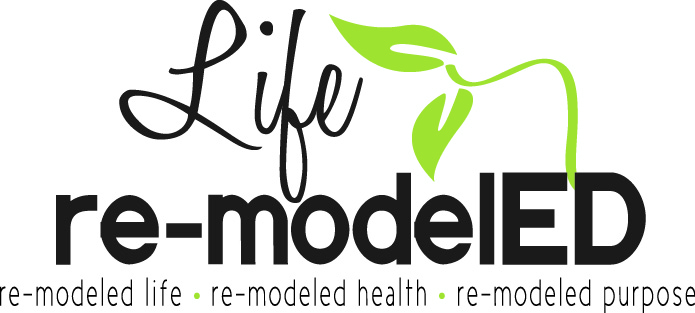Growing up, I never really compared myself with anyone. I did not go to anyone for how I should look or act; I was happy with what I saw in the mirror. Food was just food and my body was just my body. When I began modeling and as I worked on striving for perfection in the modeling industry, I started, for the first time, comparing myself with those around me.
The quiet whispers of lies in my head continued to grow louder and it was not long before I found myself trapped in an eating disorder. My eating disorder pushed me into an extreme way of thinking; it was always all or nothing. In my mind, my worth and my identity was based solely on my size and how much I had eaten that day.
Jobs in the modeling industry are competitive and everyone seemed to be sizing each other up at castings, wondering what it would take to be the best and to be successful. I thought I was the one in control, but in reality, my eating disorder had taken total control over me. Eventually, booking jobs wasn’t even important to me anymore and I began to define success in my disordered eating behaviors.
Comparison is the thief of joy – Theodore Roosevelt
After years of recovery and working towards not letting my mind stray to a place of comparison, I now have a renewed respect and love for my body and myself. I know without a doubt that worth is so much more than my outward appearance.
There has never been a situation where comparison brought a positive outcome. It only produces shame and unhappiness. I had to learn the hard way that there is no such thing as a perfect body – perfection is something that does not exist. There will always be someone skinnier, smarter, or better than you. If you measure your worth on other people, then you can never truly love yourself. Comparison becomes almost involuntary; there is no way to snap your fingers and stop comparing yourself to others. You have a conscious choice to accept and love yourself. We all need to learn to love ourselves unconditionally and embrace our imperfections.
Something that may be helpful if you catch yourself comparing yourself to others or listening to the negative lies in your head, is going over the Ten Ways to Untwist Your Thinking by David Burns from The Feeling Good Handbook.
- Identify The Distortion: Write down your negative thoughts so you can see which of the ten cognitive distortions you’re involved in. This will make it easier to think about the problem in a more positive and realistic way.
- Examine The Evidence: Instead of assuming that your negative thought is true, examine the actual evidence for it. For example, if you feel that you never do anything right, you could list several things you have done successfully.
- The Double-Standard Method: Instead of putting yourself down in a harsh, condemning way, talk to yourself in the same compassionate way you would talk to a friend with a similar problem.
- The Experimental Technique: Do an experiment to test the validity of your negative thought.
- Thinking In Shades Of Grey: Although this method may sound drab, the effects can be illuminating. Instead of thinking about your problems in all-or-nothing extremes, evaluate things on a scale of 0 to 100. When things don’t work out as well as you hoped, think about the experience as a partial success rather than a complete failure. See what you can learn from the situation.
- The Survey Method: Ask people questions to find out if your thoughts and attitudes are realistic. For example, if you feel that public speaking anxiety is abnormal and shameful, ask several friends if they ever felt nervous before they gave a talk.
- Define Terms: When you label yourself ‘inferior’ or ‘a fool’ or ‘a loser,’ ask, “What is the definition of ‘a fool’?” You will feel better when you realize that there is no such thing as ‘a fool’ or ‘a loser.’
- The Semantic Method: Simply substitute language that is less colorful and emotionally loaded. This method is helpful for ‘should statements.’ Instead of telling yourself, “I shouldn’t have made that mistake,” you can say, “It would be better if I hadn’t made that mistake.”
- Re-attribution: Instead of automatically assuming that you are “bad” and blaming yourself entirely for a problem, think about the many factors that may have contributed to it. Focus on solving the problem instead of using up all your energy blaming yourself and feeling guilty.
- Cost-Benefit Analysis: List the advantages and disadvantages of a feeling (like getting angry when your plane is late), a negative thought (like “No matter how hard I try, I always screw up”), or a behavior pattern (like overeating and lying around in bed when you’re depressed). You can also use the cost benefit analysis to modify a self-defeating belief such as, “I must always try to be perfect.”
Eating disorders don’t have to have the final say with our thoughts and how we view ourselves. For me, my body and mind began to be renewed when I held my thoughts to a higher standard and learned how to separate the lies from the truth. We are worth filtering our thoughts and seeing the lies for what they are.
Thankfully, now, I don’t let comparisons rule my life anymore. I have learned that our imperfections are what make all of us unique, not something that should ever hold us back. Every day is a new start and a chance to view yourself as much more than a number on a scale.
If comparison is the thief of joy, then cherishing our bodies and ourselves must be the secret to being happy with all that we are.

